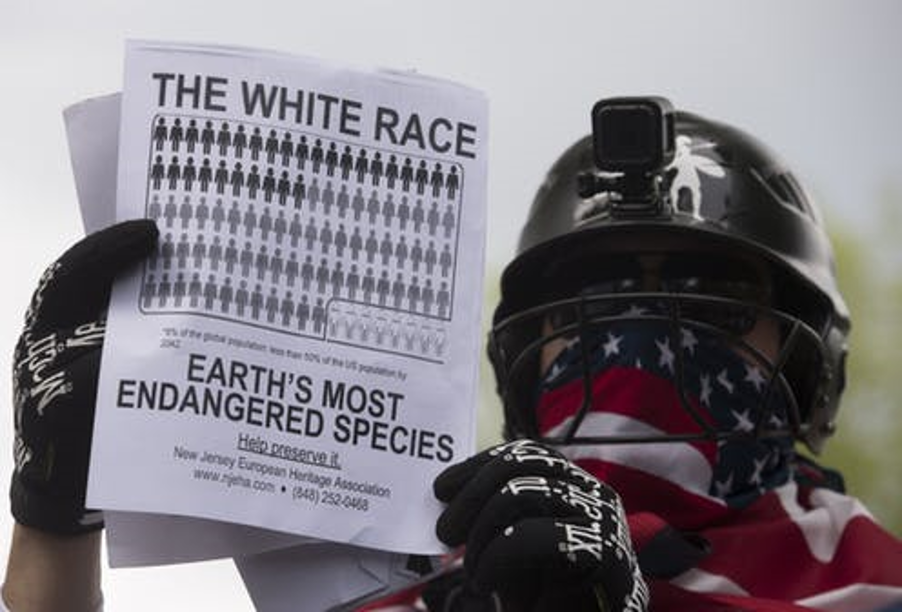More languages
More actions
(Added page.) Tag: Visual edit |
mNo edit summary Tag: Visual edit |
||
| Line 2: | Line 2: | ||
A '''conspiracy theory''' is an attempted rationalization of an event or pattern of events that entails a often small yet powerful group of people who are plotting to preform an action on society, often with malicious intent. Conspiracy theories often reject commonly held knowledge or empirical fact, instead relying on a number of cognitive biases. | A '''conspiracy theory''' is an attempted rationalization of an event or pattern of events that entails a often small yet powerful group of people who are plotting to preform an action on society, often with malicious intent. Conspiracy theories often reject commonly held knowledge or empirical fact, instead relying on a number of cognitive biases. | ||
Conspiracy theories are often used by [[Far-right politics|far-righters]] as a means | Conspiracy theories are often used by [[Far-right politics|far-righters]] as a means or overlooking the factor of [[capitalism]] in often increasingly common economic recessions, instead, blaming the hard times on ethnic groups or "elites". In the past, conspiracy theories have been used to justify large autocities, such as [[genocide]].<ref>{{Citation|author=Douglas, Karen M.; Uscinski, Joseph E.; Sutton, Robbie M.; Cichocka, Aleksandra; Nefes, Turkay; Ang, Chee Siang; Deravi, Farzin|year=2019|title=Understanding Conspiracy Theories|title-url=https://onlinelibrary.wiley.com/doi/10.1111/pops.12568|pdf=https://onlinelibrary.wiley.com/doi/epdf/10.1111/pops.12568|isbn=0162-895X|doi=10.1111/pops.12568|trans-lang=English}}</ref> | ||
== References == | == References == | ||
<references /> | <references /> | ||
Revision as of 02:50, 24 June 2022

A conspiracy theory is an attempted rationalization of an event or pattern of events that entails a often small yet powerful group of people who are plotting to preform an action on society, often with malicious intent. Conspiracy theories often reject commonly held knowledge or empirical fact, instead relying on a number of cognitive biases.
Conspiracy theories are often used by far-righters as a means or overlooking the factor of capitalism in often increasingly common economic recessions, instead, blaming the hard times on ethnic groups or "elites". In the past, conspiracy theories have been used to justify large autocities, such as genocide.[1]
References
- ↑ Douglas, Karen M.; Uscinski, Joseph E.; Sutton, Robbie M.; Cichocka, Aleksandra; Nefes, Turkay; Ang, Chee Siang; Deravi, Farzin (2019). Understanding Conspiracy Theories. [PDF] ISBN 0162-895X doi: 10.1111/pops.12568 [HUB]
